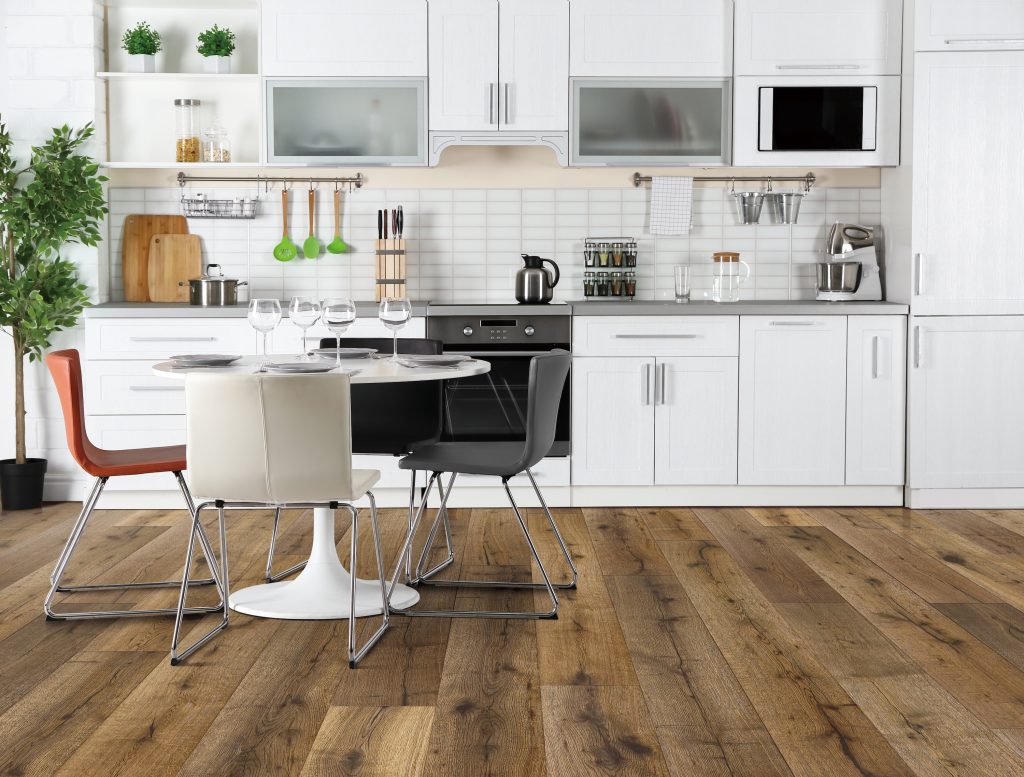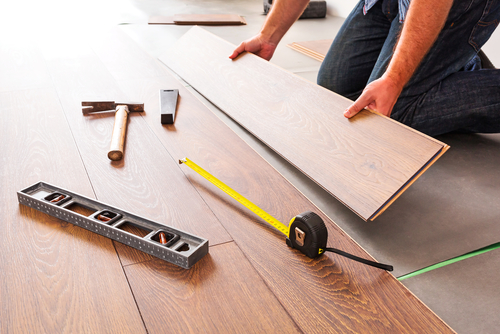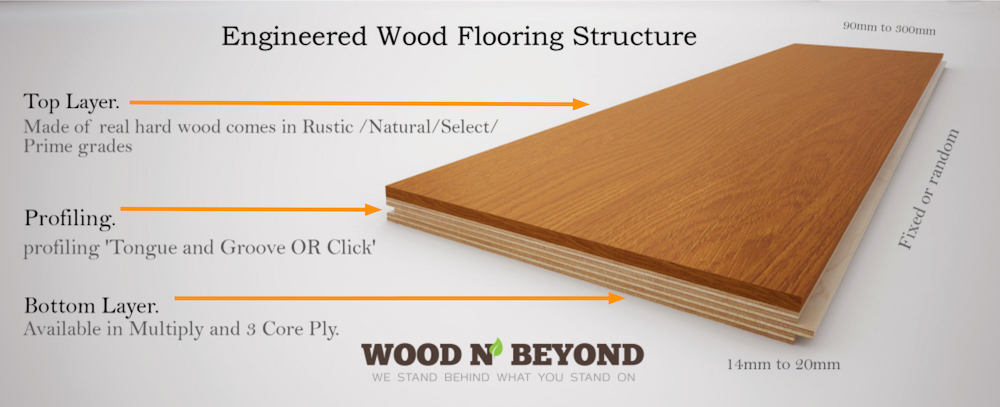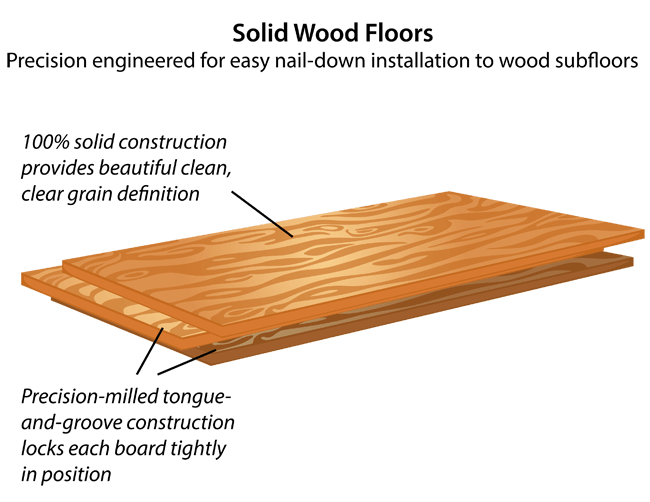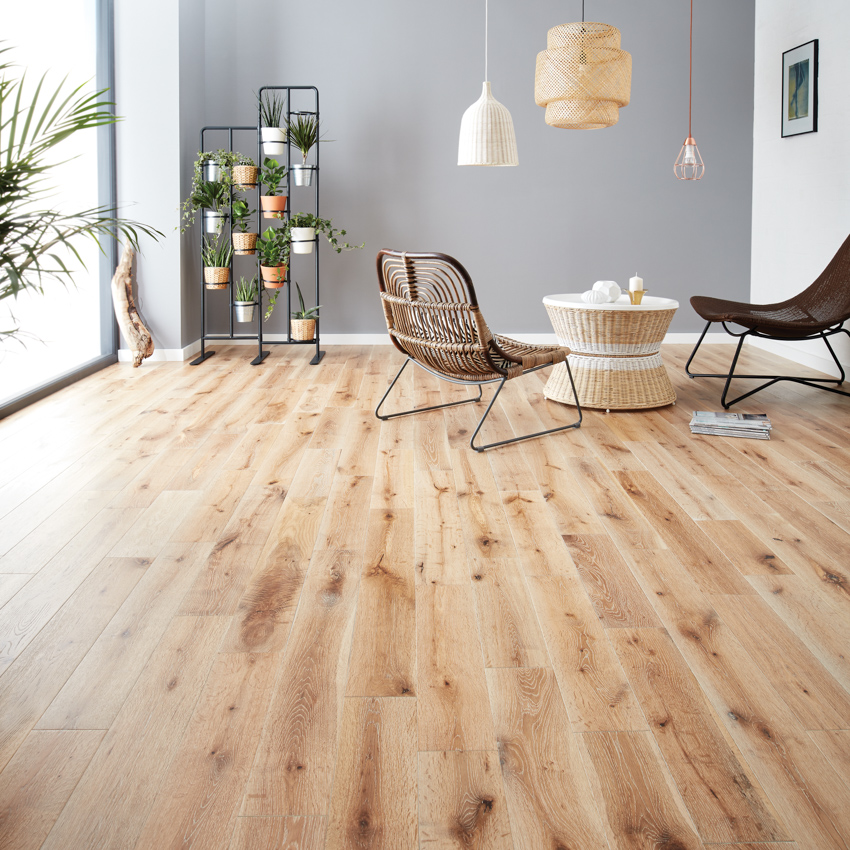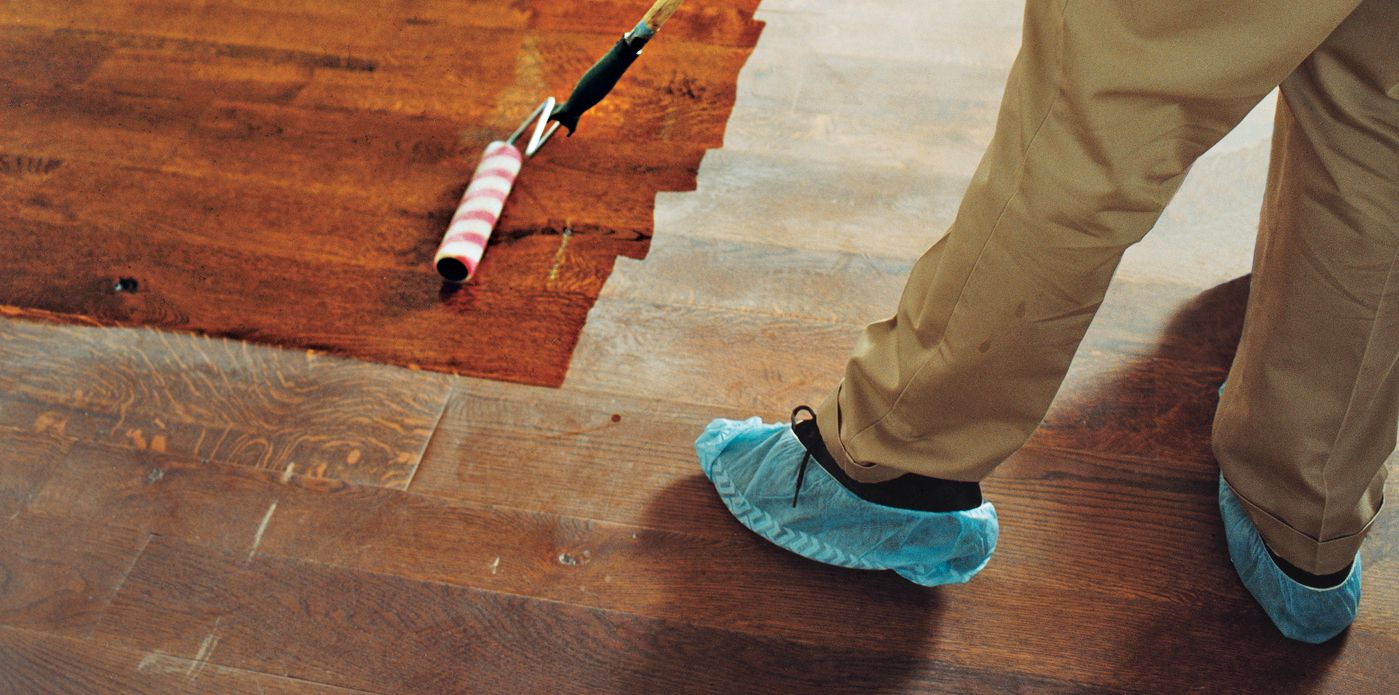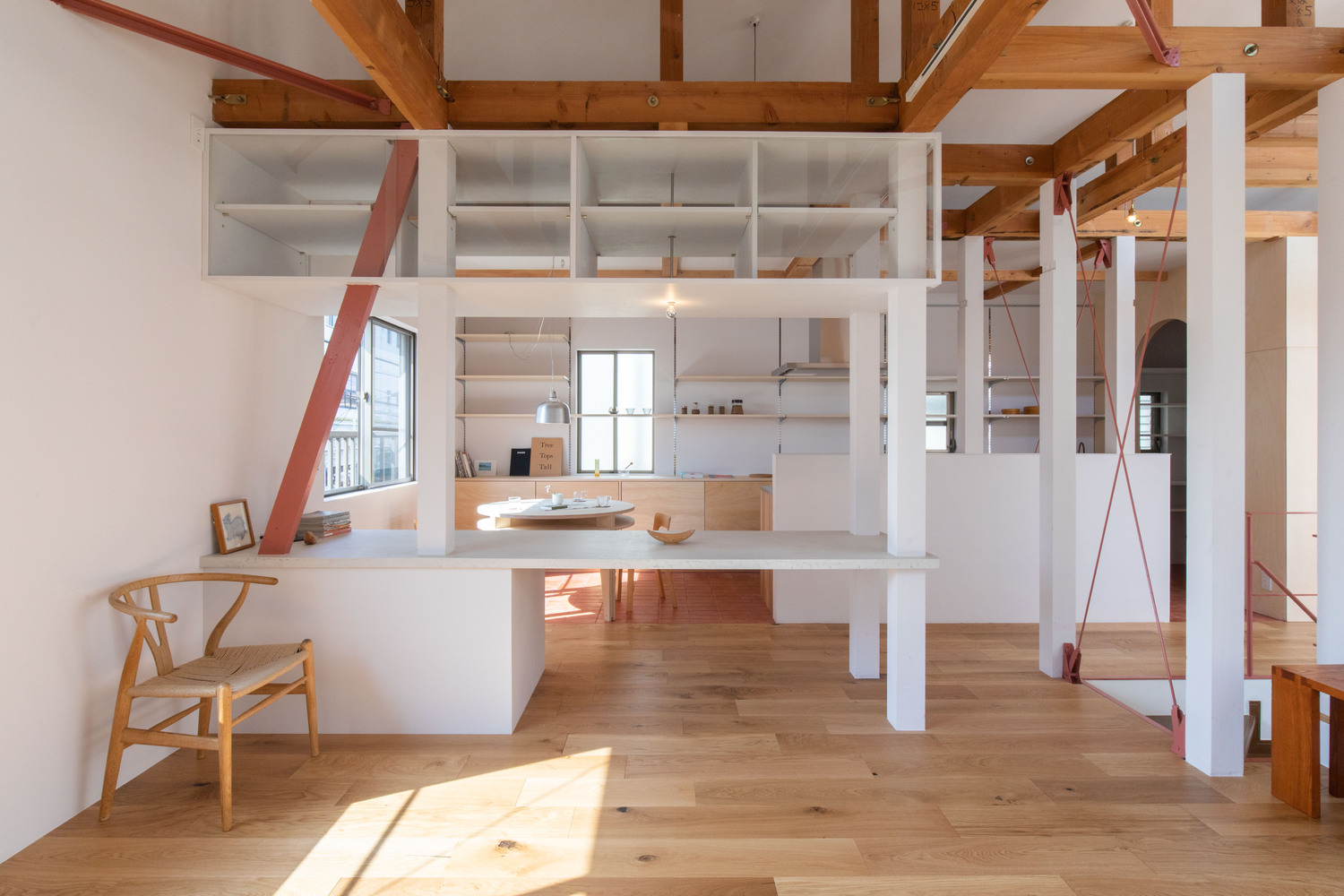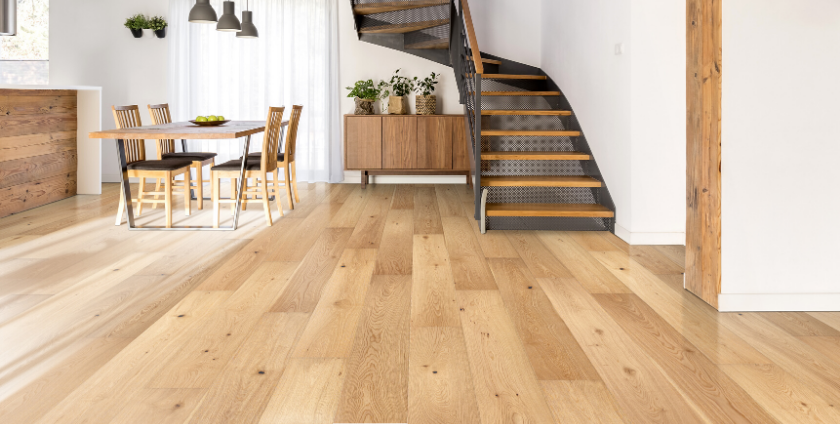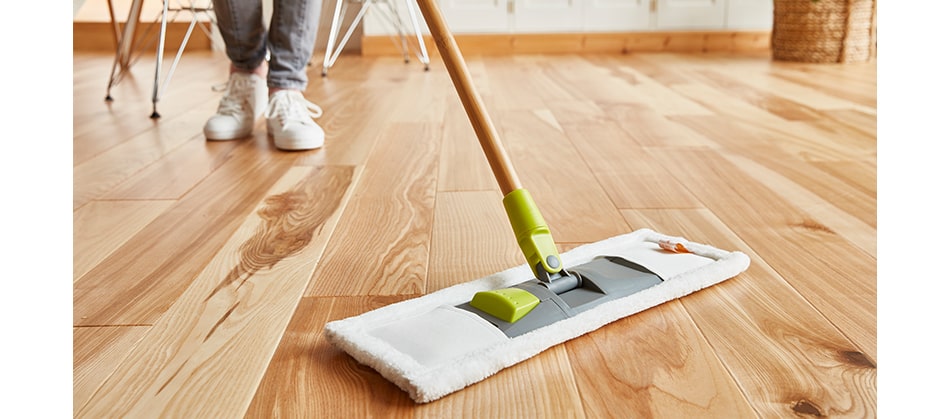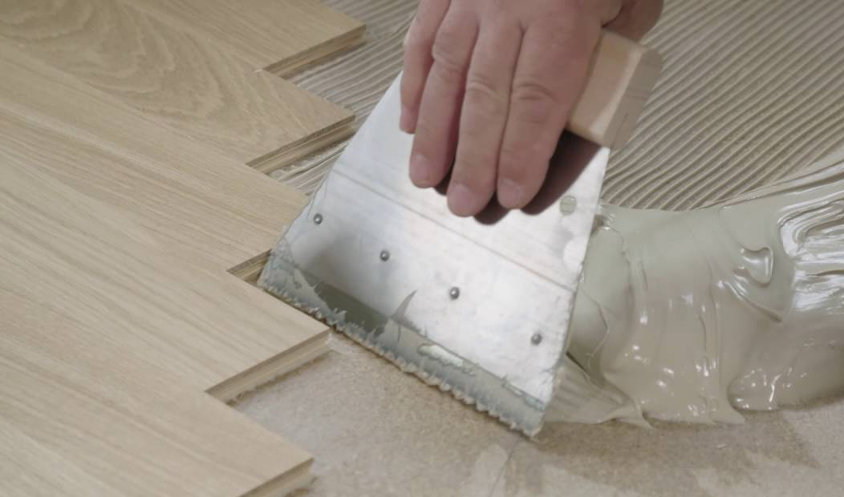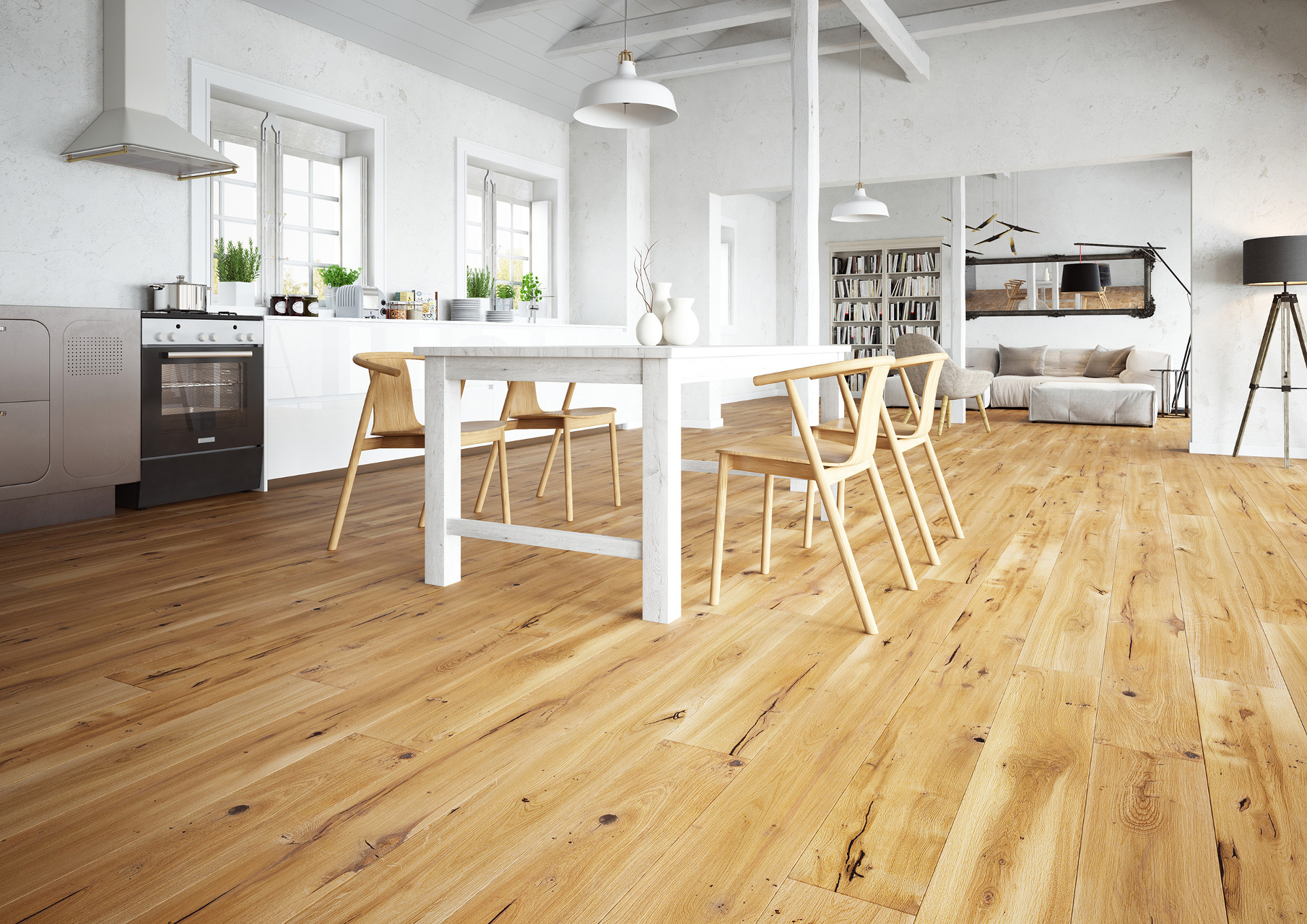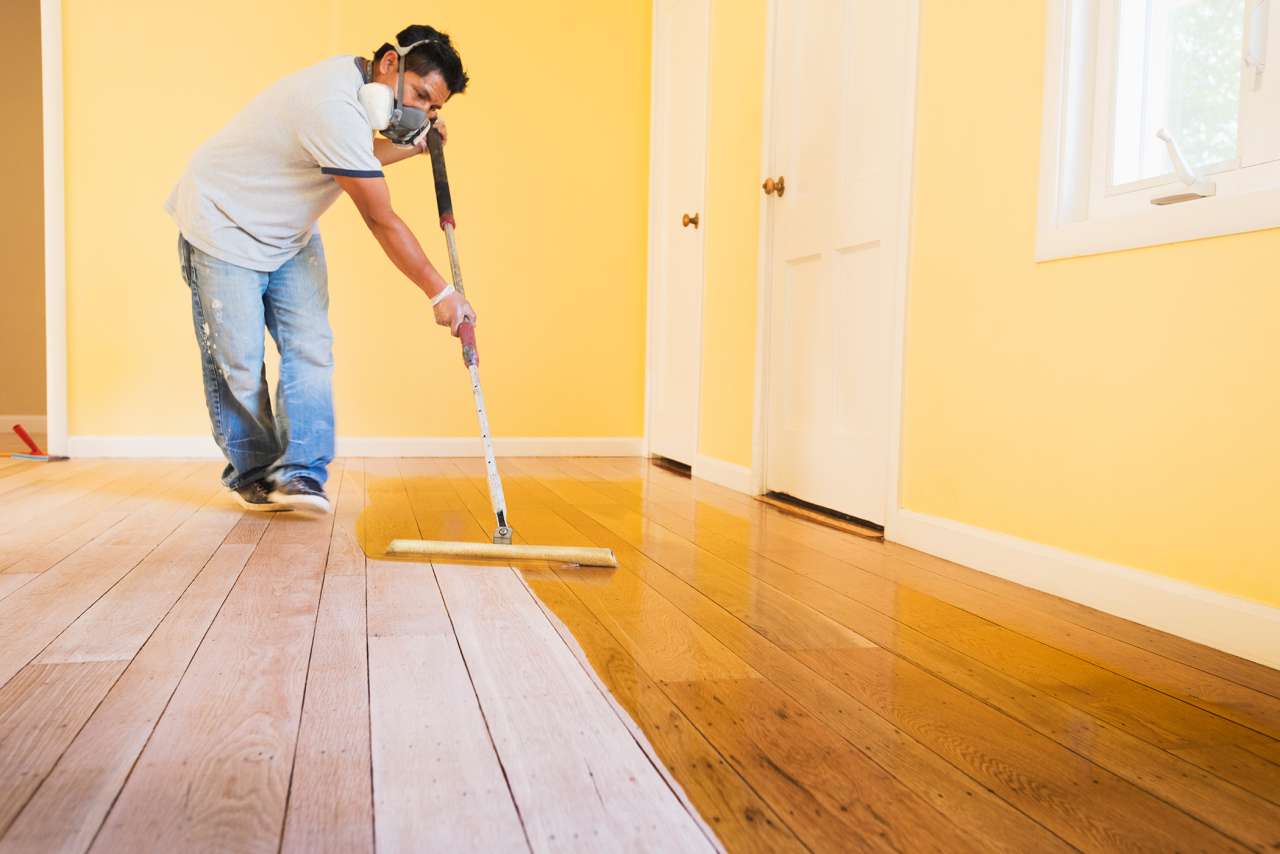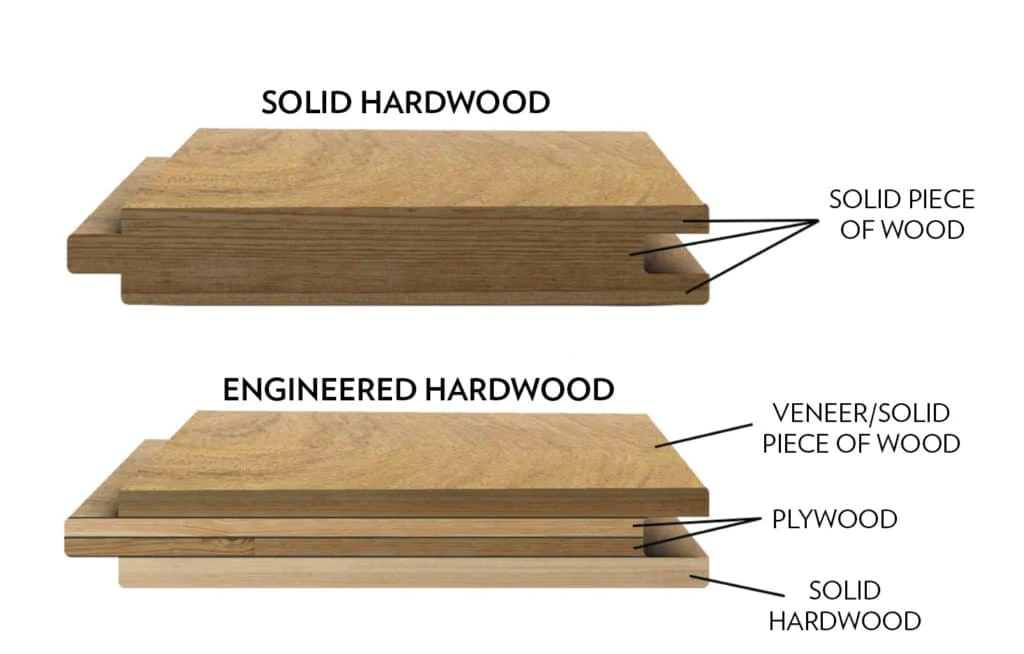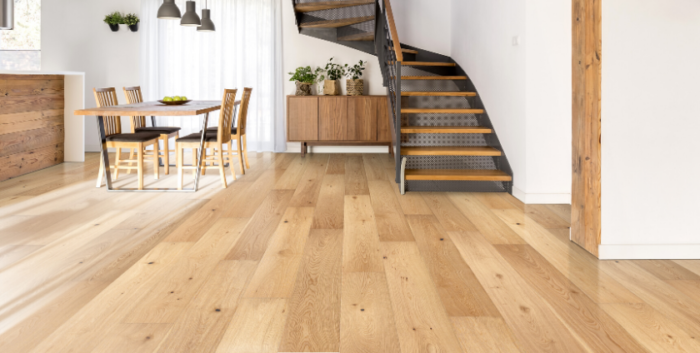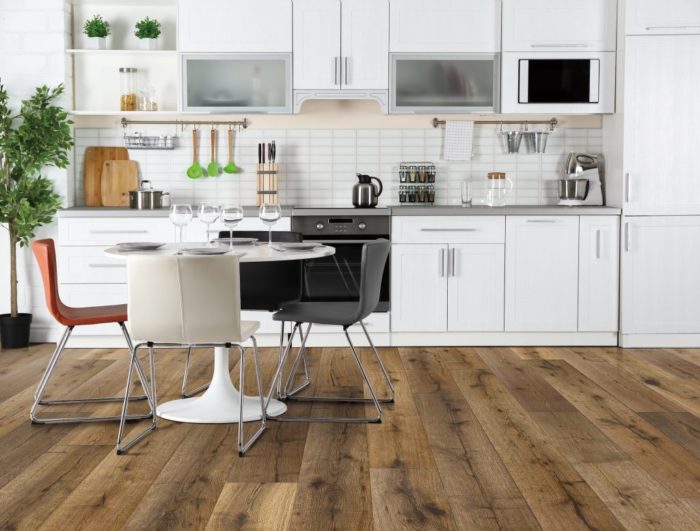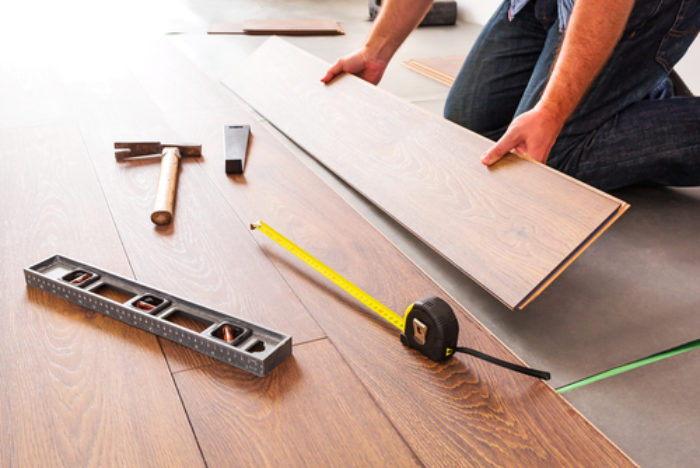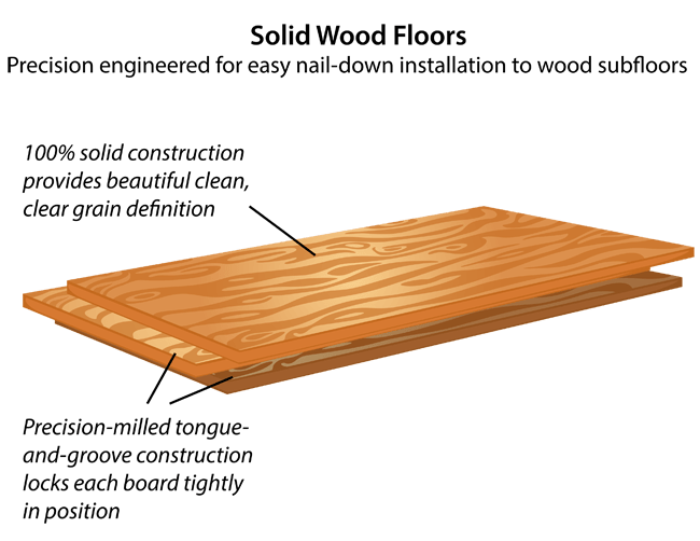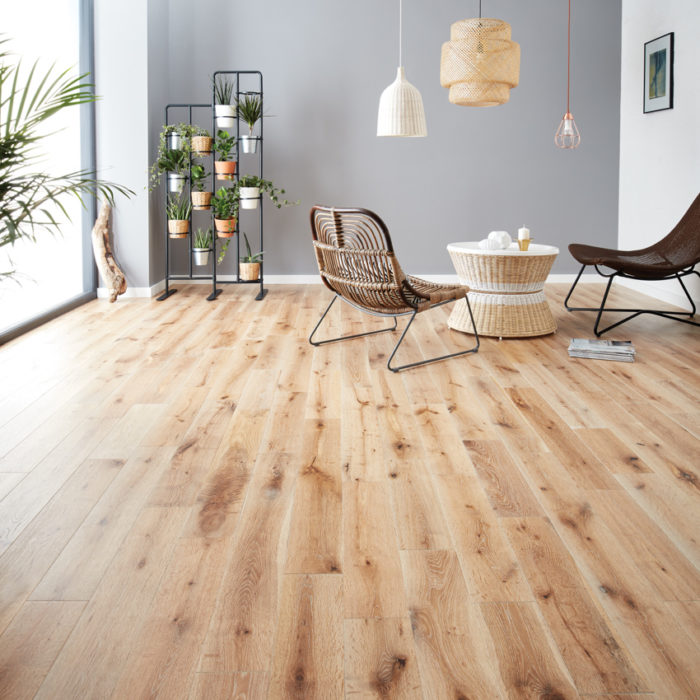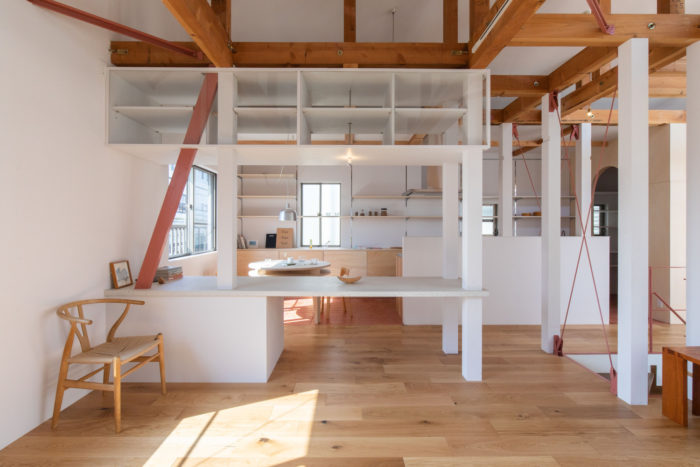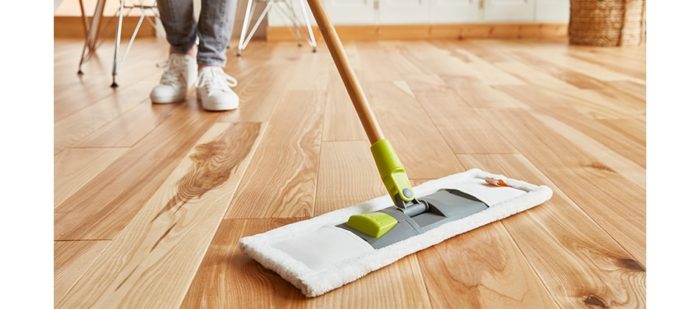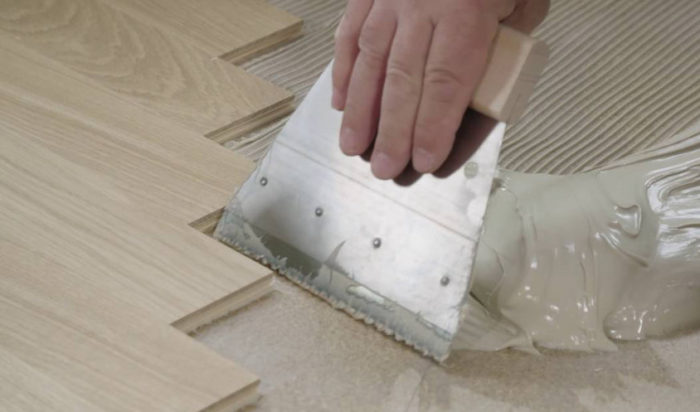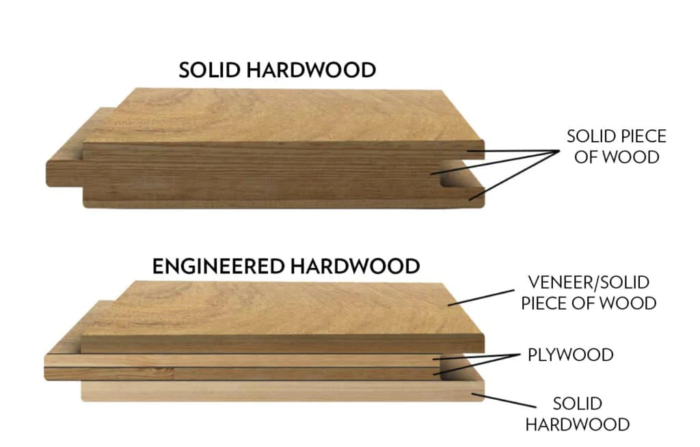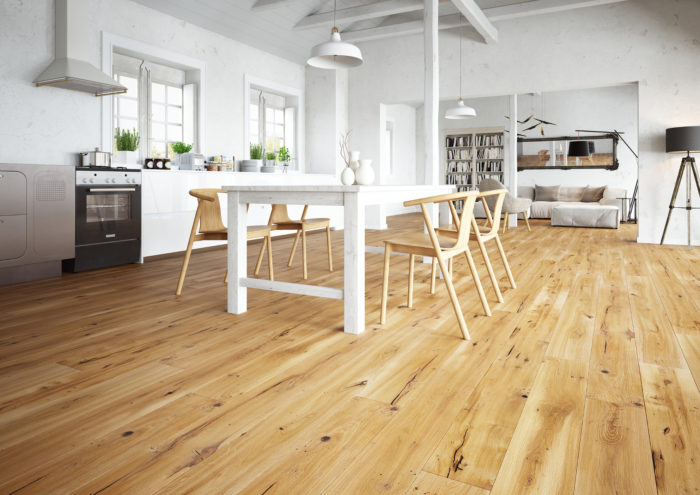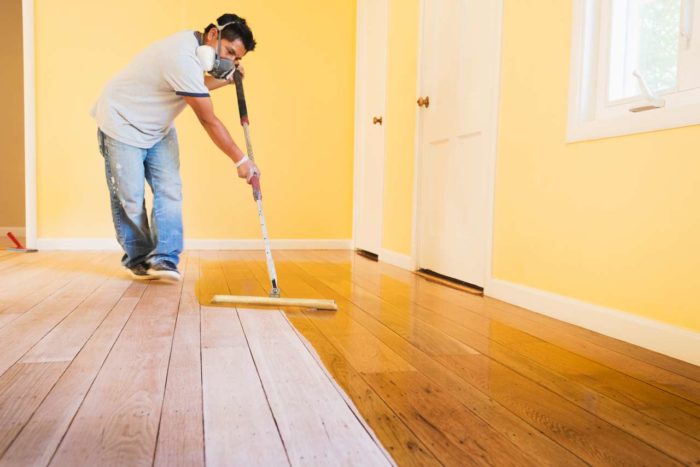Are you considering a flooring makeover for your home? If so, you’ve probably come across the timeless allure of Hardwood Flooring. There’s just something about hardwood’s warm, natural beauty that can transform any space into a cozy and inviting haven. But here’s the question: Should you go for Engineered Hardwood Flooring or Solid Hardwood Flooring? It’s a dilemma many homeowners face when making this critical decision. Fret not; we’re here to break it all down for you!
The Great Hardwood Flooring Showdown
Let’s jump into the heart of the matter and explore the key differences between Engineered and Solid Hardwood Flooring.
A) Engineered Hardwood Flooring
Engineered hardwood is a modern marvel in the world of flooring. It’s a layered product comprised of several thin layers of wood (or plywood) glued together. The top layer is a beautiful veneer of natural hardwood, which gives it that authentic appearance. But here’s what makes it unique:
1) Stability and Durability
Engineered hardwood is highly stable due to its layered construction. It’s less susceptible to expanding and contracting with changes in temperature and humidity compared to solid hardwood. This stability makes it an excellent choice for areas with varying moisture levels, such as basements or kitchens.
2) Versatility
You can install engineered hardwood on various subfloors, including concrete, making it more versatile than solid hardwood. It’s available in various widths and finishes, allowing you to choose the style that best suits your home.
3) Eco-Friendly
Engineered hardwood typically uses less hardwood material, making it a more sustainable option for environmentally-conscious homeowners.
4) Cost-Effective
While it may still be an investment, engineered hardwood is often more budget-friendly than solid hardwood due to its construction.
B) Solid Hardwood Flooring
Solid hardwood flooring, on the other hand, is the traditional classic. It’s made from a single piece of wood and has been beautifying homes for centuries. Let’s take a closer look:
1) Authenticity
Solid hardwood exudes authenticity like no other. It’s the real deal, with each plank showcasing the natural grain and character of the wood. If you’re seeking that unmistakable, timeless charm, solid hardwood is the way to go.
2) Refinishing Potential
One of the significant advantages of solid hardwood is its ability to be sanded and refinished multiple times. This means it can last for generations with proper care. Scratches, dents, and wear and tear can be erased, returning your floor to its original glory.
3) Longevity
Solid hardwood has a reputation for lasting a lifetime. It often outlives the homeowners themselves.
4) Value Addition
Installing solid hardwood can increase the value of your home, making it an investment with potential returns.
Let’s Talk Maintenance
When it comes to maintaining your hardwood flooring, there are some differences to consider:
A) Engineered Hardwood
- Engineered hardwood is relatively easy to maintain.
- Regular cleaning with a broom or vacuum and occasional mopping with a damp (not wet) cloth is usually sufficient.
- Be cautious with spills, as prolonged exposure to moisture can damage the veneer.
B) Solid Hardwood
- Solid hardwood requires more careful maintenance.
- Avoid excessive moisture at all costs, as it can lead to warping and cupping.
- Refinishing may be necessary every few years to keep it looking its best.
Deciding Factors
Now that we’ve laid out the characteristics of both types of hardwood flooring, it’s time to consider some key factors that can help you make the right choice for your home.
1) Location, Location, Location
Consider where you intend to install the hardwood flooring. Engineered hardwood is the safer choice if it’s a below-grade area like a basement due to its moisture resistance.
2) Budget
Your budget plays a significant role in your decision. Engineered hardwood tends to be more cost-effective, but solid hardwood might be worth the investment for specific areas or if you’re planning to stay in your home long-term.
3) Style Preferences
Think about the look you want to achieve. If you’re aiming for a rustic, authentic appearance, solid hardwood is your go-to. Engineered hardwood offers more variety in terms of finishes and widths.
4) Environmental Considerations
If sustainability is a top priority, consider the eco-friendly aspects of engineered hardwood.
5) Maintenance Commitment
Be honest with yourself about your willingness to commit to maintenance. Solid hardwood demands more attention, but the results are often worth it.
Final Thoughts
Choosing between Engineered Hardwood Flooring and Solid Hardwood Flooring ultimately comes down to your specific needs, preferences, and budget. Both options offer unique benefits and can add warmth and character to your home.
To summarize, go with engineered hardwood if you’re looking for a versatile, cost-effective, and moisture-resistant option. On the other hand, if you want the unmatched authenticity, longevity, and value addition that solid hardwood brings, it’s worth the investment.
Remember, your choice of hardwood flooring is an investment in your home’s comfort, aesthetics, and value. So, take your time, weigh your options, and choose the flooring best suits your lifestyle and design vision. Whether it’s engineered or solid, you’ll be walking on beauty and elegance for years to come. Happy flooring, homeowners!
